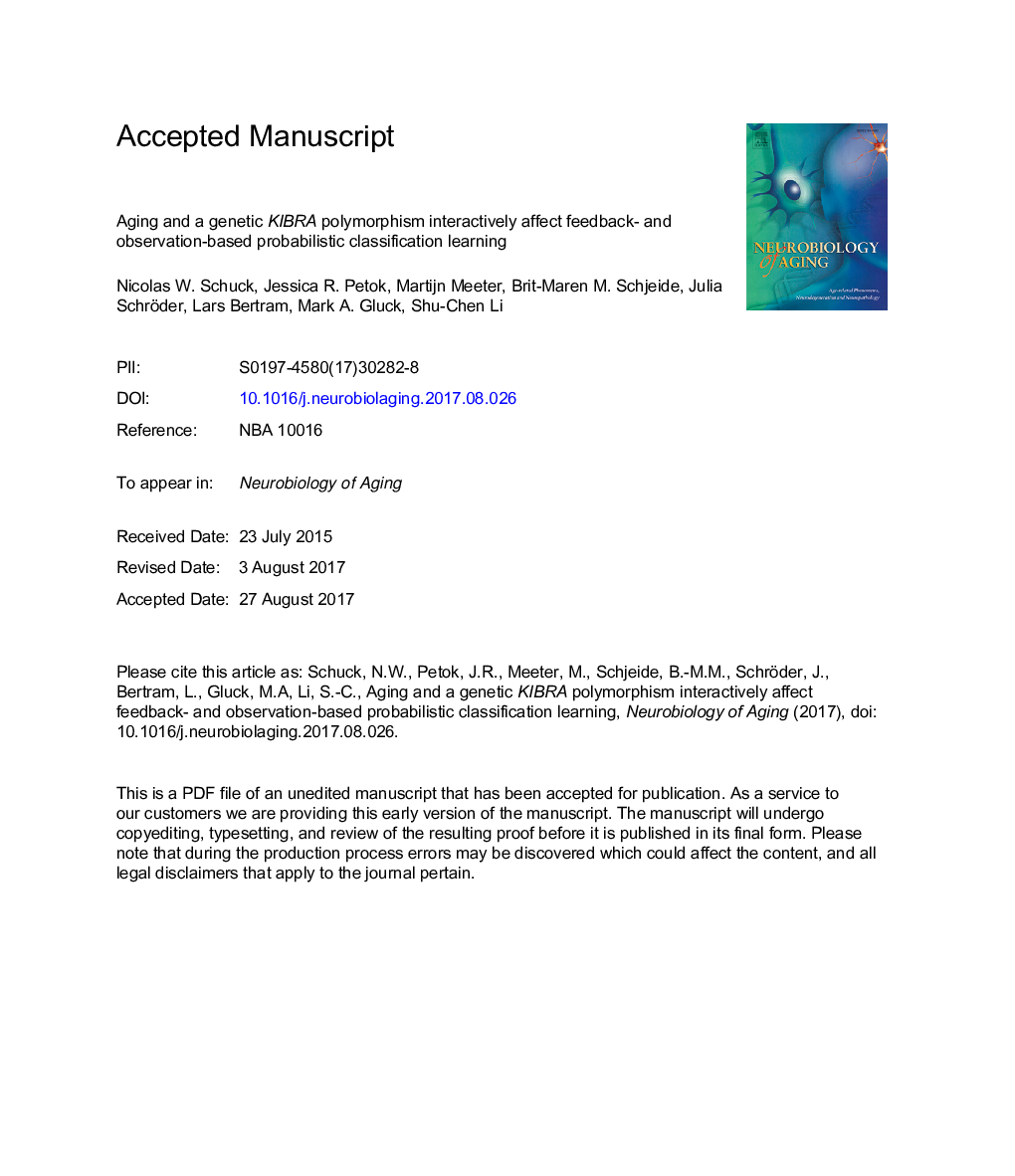| کد مقاله | کد نشریه | سال انتشار | مقاله انگلیسی | نسخه تمام متن |
|---|---|---|---|---|
| 4932515 | 1433523 | 2018 | 32 صفحه PDF | دانلود رایگان |
عنوان انگلیسی مقاله ISI
Aging and a genetic KIBRA polymorphism interactively affect feedback- and observation-based probabilistic classification learning
ترجمه فارسی عنوان
پیری و پلی مورفیسم ژنتیک کیبرا به طور تعاملی بر یادگیری طبقه بندی احتمالاتی مبتنی بر بازخورد و مشاهده تأثیر می گذارند
دانلود مقاله + سفارش ترجمه
دانلود مقاله ISI انگلیسی
رایگان برای ایرانیان
کلمات کلیدی
موضوعات مرتبط
علوم زیستی و بیوفناوری
بیوشیمی، ژنتیک و زیست شناسی مولکولی
سالمندی
چکیده انگلیسی
Probabilistic category learning involves complex interactions between the hippocampus and striatum that may depend on whether acquisition occurs via feedback or observation. Little is known about how healthy aging affects these processes. We tested whether age-related behavioral differences in probabilistic category learning from feedback or observation depend on a genetic factor known to influence individual differences in hippocampal function, the KIBRA gene (single nucleotide polymorphism rs17070145). Results showed comparable age-related performance impairments in observational as well as feedback-based learning. Moreover, genetic analyses indicated an age-related interactive effect of KIBRA on learning: among older adults, the beneficial T-allele was positively associated with learning from feedback, but negatively with learning from observation. In younger adults, no effects of KIBRA were found. Our results add behavioral genetic evidence to emerging data showing age-related differences in how neural resources relate to memory functions, namely that hippocampal and striatal contributions to probabilistic category learning may vary with age. Our findings highlight the effects genetic factors can have on differential age-related decline of different memory functions.
ناشر
Database: Elsevier - ScienceDirect (ساینس دایرکت)
Journal: Neurobiology of Aging - Volume 61, January 2018, Pages 36-43
Journal: Neurobiology of Aging - Volume 61, January 2018, Pages 36-43
نویسندگان
Nicolas W. Schuck, Jessica R. Petok, Martijn Meeter, Brit-Maren M. Schjeide, Julia Schröder, Lars Bertram, Mark A. Gluck, Shu-Chen Li,
